In deciding on our next WTF celebrity to cover, we passed around several names but in the end we all decided that: There could be only One! Despite being basically blind, Christopher Lambert made a name for himself as the king of Sci-Fi action films. One could say he single-handedly kept Blockbuster Video in business as most of his output in the 90’s debuted on the bottom shelves of the video rental chain. But few performers have made their mark on the international stage like Christopher Lambert, alternating between North American schlock and more prestigious French fare. Despite most of us knowing Lambert mainly for two iconic roles, there is much more to know about this American-born French actor; it’s time we find out just WTF Happened to Christopher Lambert.
Greystroke: The Legend of Tarzan, Lord of the Apes
But as always, we must begin at the beginning, and the beginning began for renowned French actor Christopher Lambert on March 29, 1957 in.. Great Neck, New York?! That is because Lambert’s father was a French diplomat stationed in New York at the United Nations before moving to Switzerland when he was two years old and finally returning to Paris, France in his teen years. Lambert would get a taste for the arts at a young age by acting in a play at 12 years old and would attend school in Paris to hone his craft before leaping onto the screen with small roles in a series of French films with credited roles as “Thug at the Dance Party” and “jockey” under his original name Christophe Lambert. But it would be the year 1984 that would introduce Lambert to American audiences when director Hugh Hudson was looking to cast an unknown actor in his updated take on a classic story: Greystoke: The Legend of Tarzan, Lord of the Apes. Hudson says the casting came down to two people, Lambert and another unknown actor named Viggo Mortensen, but that Lambert got the part for a pretty specific reason: Lambert is Myopic, meaning that he is near-sighted and nearly blind. Hudson loved that when Lambert took off his glasses, his gaze felt like he was looking through you. The film would receive several Academy Award nominations and become the 15th most successful film at the box office that year.
Highlander
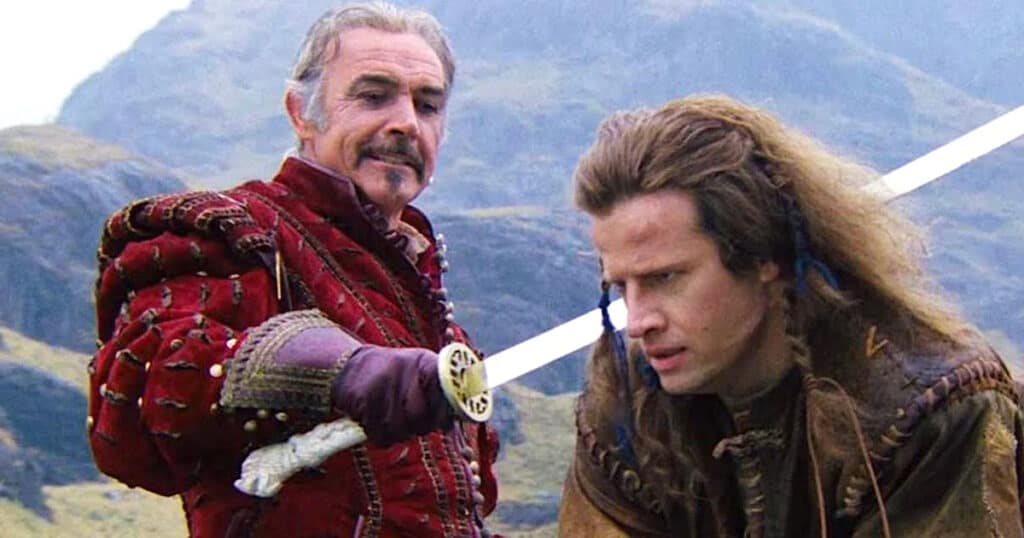
With his star on the rise, Lambert would return to France to make two more films: Paroles et Musique and Luc Besson’s Subway for which he would win the César Award for Best Actor in 1986. That same year, Lambert would cement his legacy to American audiences by appearing in The Only One: Connor MacLeod in Highlander. Directed by Russell Mulcahy, and co-starring the iconic Sean Connery and Clancy Brown, along with a superb score by Michael Kamen and Queen, the movie is largely regarded as a classic now. But, given how well that film is regarded in today’s cinematic culture, you would assume Highlander was a massive success when it was released. You would be incorrect in that assessment, as the film had a $19 million budget but only recouped $12.8 million of that in theatres. That could be because when it was released, critics called it “entertaining, but a total mess.” Luckily, the film found its audience when it hit VHS… you see, kids, VHS was a format before DVD… never mind! With the eventual success of Highlander, Lambert would fully launch his North American career; the only problem is that none of his English language films really seemed to make an impression. His next four films, The Sicilian, Priceless Beauty, To Kill a Priest and Why Me, combined for a worldwide gross of less than $10 million. Luckily, there was some positive to come from those films as Lambert would meet Diane Lane on Priceless Beauty, and the two would marry in 1988, welcoming a daughter in 1993.
By 1991, Lambert would return to the role of Connor McLeod for Highlander II: The Quickening, which actually brought the legacy of Highlander down a peg as this film, which would see one of Lambert’s fingers be partially chopped off during a sword fight gone wrong, has gone on to be recognized as one of the worst films ever made, which can be attributed to the studio cutting the film separately from the director’s vision and rearranging scenes and presenting a stripped down 91-minute version of the film. Years later, a “renegade cut” of the film was released, restoring some special effects and the director’s original vision. At the same time, fans still maintain that the film isn’t that good, and they unanimously say it is better than the theatrical cut, which only made $15.6 million at the box office.
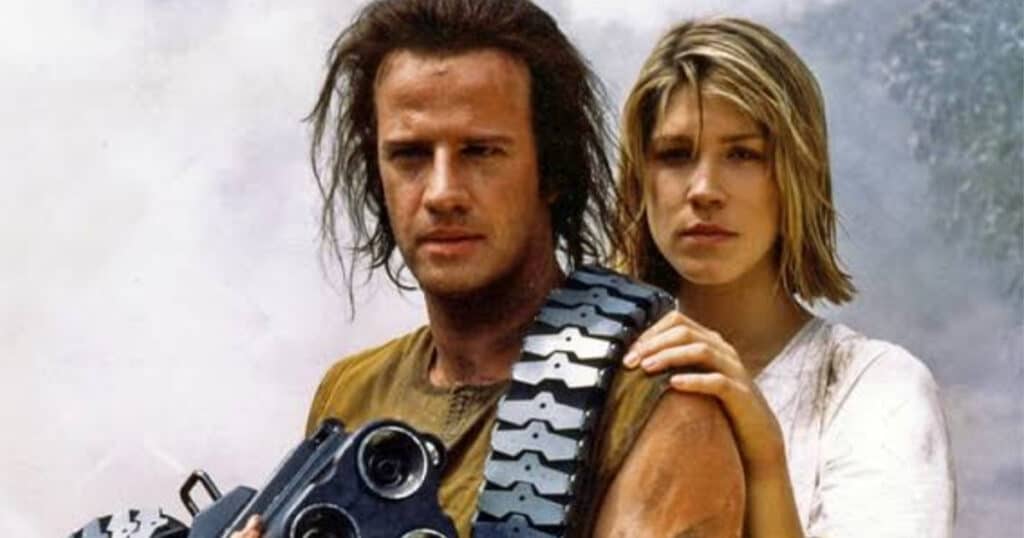
Fortress and second attempt to breakthrough in America
After appearing in the 1992 film Knight Moves opposite his soon-to-be ex-wife Diane Lane, Lambert declined to star in a Highlander TV series, opting to appear in just the show pilot episode to help launch the new story. Lambert would ask for a reasonable fee of just $50,000 for his work in the episode but a French investor balked at that request and had him written out of the show, this infuriated other investors who felt you needed that connective tissue to launch the show and had Connor MacLeod written back into the series, but by this time Lambert was annoyed with how he was treated and eventually filmed his role in the show for $500,000! He would finish 1992 by starring in another sci-fi action film, Fortress (a Best Movie You Never Saw favorite), which took place in the distant future of… 2017! Fortress was a MAJOR hit in Europe – as big as the first Highlander, which is why they tried to break him through in North America.
The year 1994 would see Lambert star in another low-grossing action film called Gunmen while also getting into the direct-to-video business with the film Roadflower. He would finish 1994 by stepping back into Connor McLeod’s shoes for Highlander: The Final Dimension; the film would ignore the events of the poorly received Highlander II, which has a rare 0% on Rotten Tomatoes, but even by trying to right that wrong, Highlander III would only improve on the second film by 5% as that is its current rating on Rotten Tomatoes! For as well regarded as the Highlander franchise seems to be, it appears no one liked the films, with some calling this third instalment “borderline unwatchable.”
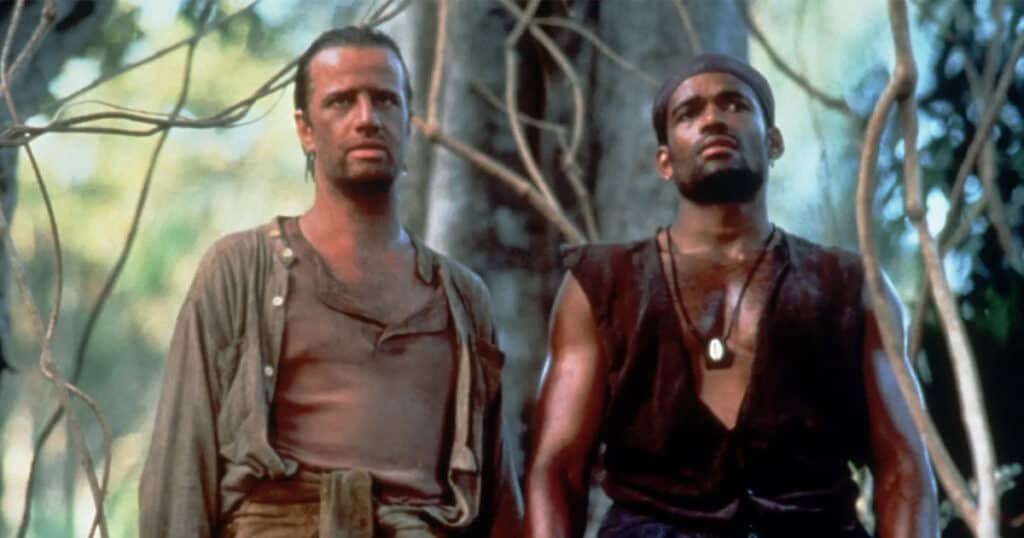
But, as many of us of a certain age know, it isn’t the Highlander films that made us love Christopher Lambert. Nope, a certain film that came out in 1995 made all teenage boys stop and take notice. After appearing in another box office bomb with The Hunted and executive producing the Hugh Grant romantic comedy Nine Months, which was a remake of a French film that Lambert produced, he would step into the iconic shoes of Lord Raiden for the highly anticipated big screen adaptation of Mortal Kombat.
Mortal Kombat
The producers originally offered the role to Sean Connery. Still, when he turned it down, they went to Lambert, who gladly accepted, turning the iconic video game character into an iconic film character. Although not everyone was pleased with his casting, in today’s world, where we must criticize everything, some people have taken issue with Lambert’s casting in the film, saying that an Asian actor should have portrayed the character. As I am not much of a gamer, I can not speak to the character’s roots, but I can say that Lambert’s performance in Mortal Kombat is why the movie works. He is the through line to the story and the characters; he recruits them and maintains order throughout the film… he is to Mortal Kombat what Yoda was to Star Wars! It paid off as it remains his highest-grossing film at the domestic box office, with just over $70 million and a $122.1 million worldwide take off a $20 million budget. Unsurprisingly, they quickly greenlit a sequel; of course, when you went and saw the sequel, you may have noticed a different actor playing Lord Raiden, as Oppenheimer’s James Remar took over the role after Lambert reportedly thought the script was not very good. He was absolutely right because Mortal Kombat: Annihilation is an abomination! That wouldn’t be the last time we would see… well, hear, Lambert as Lord Rayden as he would return to voice the character in the 2020 video game Mortal Kombat 11 and there were even talks of him returning for the recent reboot of the franchise that sadly never materialized.
Lambert’s films never seemed to be critical darlings, but the mixture of science fiction and action was where he garnered his fans. After the financial success of Mortal Kombat you would expect Lambert to see an ascension in his career. Still, over the next few years, the only place you could catch him was at home as his films tended to be schlocky direct to video sci-fi action films that I’m sure netted him a big payday but offered no real substance (without naming them, you can just cut to pictures of the posters here: North Star, Adrenalin: Fear The Rush, Mean Guns, Resurrection, Beowulf, Gideon). By the year 2000, Lambert decided to step back into some familiar territory by reprising two of his biggest roles: John Henry Brennick in Fortress 2: Re-Entry and Connor MacLeod in Highlander: Endgame which combined the film series and the TV series. Both films failed to make an impression and were quickly forgotten about.
Return to France and recent roles
Throughout his career, Christopher Lambert has alternated between English-language films and French ones. In America, audiences recognized him as a B movie legend, while in France, he was able to take on different types of roles. After appearing in several films in both countries that didn’t move the needle on his career, including a role in the notorious Richard Kelly flop Southland Tales (2006) and two films with his girlfriend at the time, Sophie Marceau, Lambert would earn some of the best reviews of his career when he starred in the French Drama White Material opposite Isabelle Huppert about a woman who stays with her coffee crop when civil war breaks out in Africa. Critics seemed almost shocked at Lambert’s performance in the film, saying that he gave a “surprisingly fragile performance.” The film has gone on to be hailed by many publications as one of the best films of the 21st Century. With that type of praise finally being put on Lambert’s name, a few years later, he would garner the box office to go with it as in 2011, he would appear in his highest-grossing film at the worldwide box office: Ghost Rider: Spirit of Vengeance! Despite not topping Mortal Kombat at the domestic box office with just $51.8 million, this Nicolas Cage-starring sequel was a hit overseas and finished its worldwide run with around $135 million.
From here, it seems Lambert had a realization that being a supporting player in more respectable projects is a respectable career path! He would appear in 6 episodes of the hit TV series NCIS: Los Angeles and would receive a nomination from the Monte Carlo TV Festival for Outstanding Actor for the Mini Series La Source before appearing in the Coen Brothers’ under-rated film Hail, Caesar! In France he would appear in critically acclaimed films such as Un Plus Une and La Folle Historic de Max et Léon, which he also produced while appearing as himself in the French TV series Call My Agent! Of course, he hadn’t completely gotten out of the direct-to-video game, taking the villain role in the Jean Claude Van Damme sequel Kickboxer: Retaliation in 2018, the same year he appeared in the critically heralded Russian language holocaust film Sobibor and opposite Julianne Moore and Ken Watanabe in Bel Canto. The following year, fans of The Blacklist could see Lambert as the political assassin Bastien Moreau in four episodes of the hit show’s sixth season.
Although his output isn’t as frequent as in the 90s, Lambert has kept himself busy, appearing in the critically acclaimed Italian film It’s Not Over in 2022 and starring in the 2023 film Dark Room. He has written two French language novels, La Fille Porte-Bonheur and Le Juge, and is a successful businessman in the food and beverage industry. Lambert says that in his early 30s, he had so much ambition, enough for two lifetimes, so he decided to pursue other things in between films as he knew acting alone couldn’t sustain him. He has invested in several ventures over the years, such as a Mineral Water company, a food packaging company, a wine company, property development and the recycling industry. He says that he adores acting but knew early on that he didn’t want to put all of his eggs in one basket.
So, as the question asks: WTF Happened to Christopher Lambert? He became a legend in nerd pop culture from two characters and made a living appearing in movies you’d say, “Sure, I’ll rent this” in the mid-90s. But he is like an iceberg, if you will allow the metaphor. An iceberg is something you only see a small portion of… but underneath, the part unseen is where all the work is getting done. That is Christopher Lambert; the parts you see are only a small portion of who the man is. His business acumen is that of a highly intelligent person who knew that his chosen profession could go away instantly. But the thing he didn’t count on was people like Christopher Lambert!
And that is why he has these iconic characters that have withstood the test of time; he even has some fun with them, as his official Instagram page says, “This is my official Instagram account because there can be only one!” Lambert is a force to reckon with not just in North America but worldwide. He even has 8 films currently in various stages of production. Christopher Lambert is doing just fine!












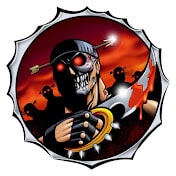
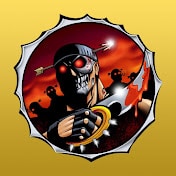






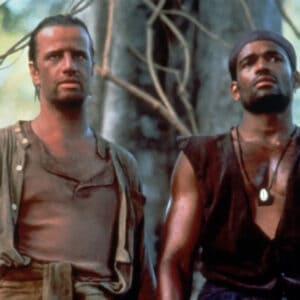
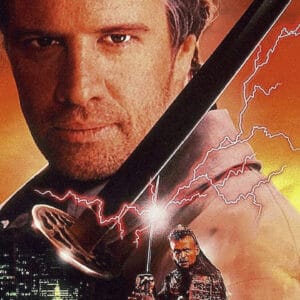
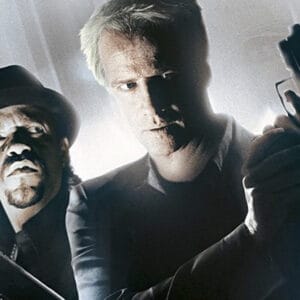





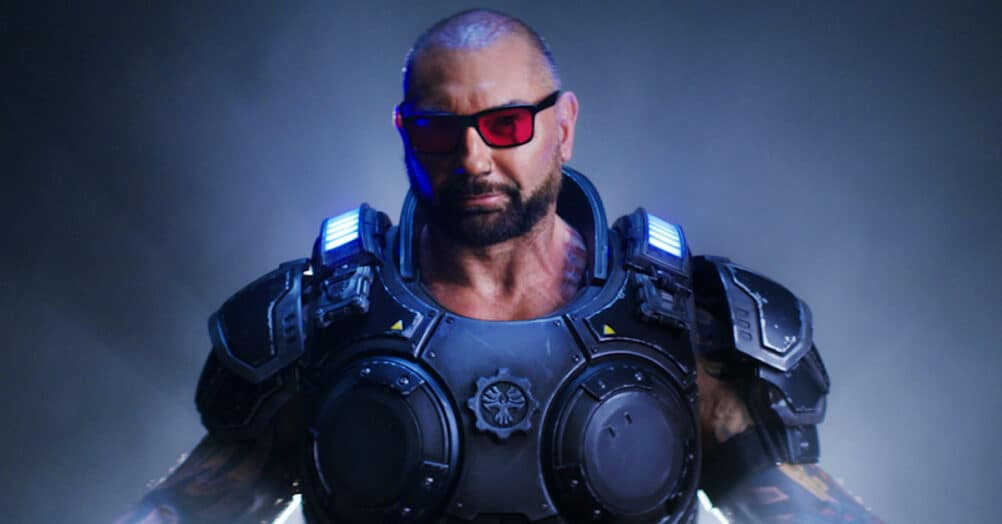

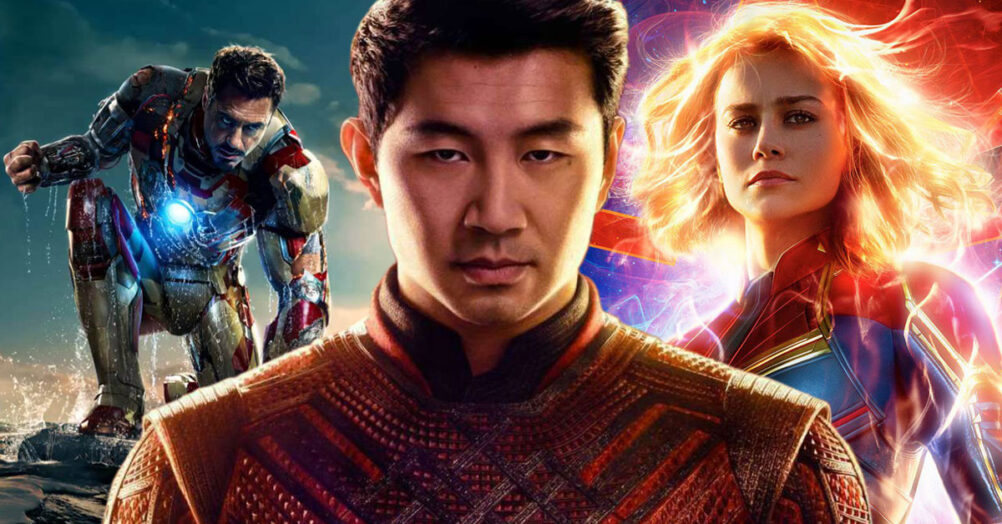



Follow the JOBLO MOVIE NETWORK
Follow us on YOUTUBE
Follow ARROW IN THE HEAD
Follow AITH on YOUTUBE